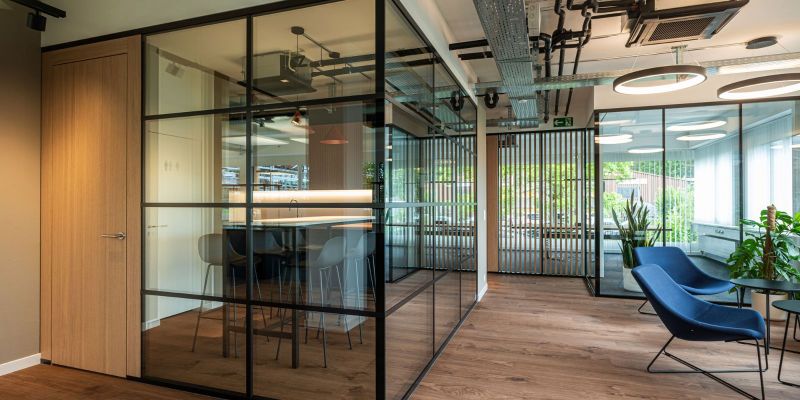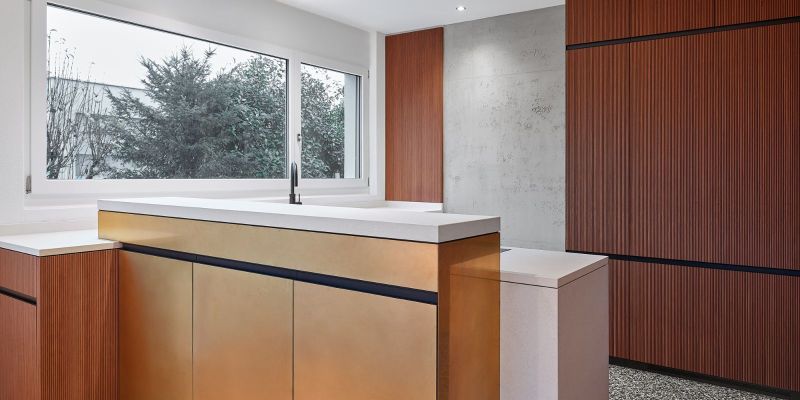21. November 2025
Design and the Guest Experience: Insights from the Swiss Hotel Industry
A recent study by the HSLU Lucerne School of Business and Design-Journey studio shows: customer-centered design not only improves the experience in the hotel industry but also increases business success. In other words: design matters – emotionally and economically.
Author
Verena Zaugg
Overview of the «Customer-Centered Design Competence in the Hotel Industry» study
Carried out by the HSLU Lucerne School of Business in collaboration with the Design-Journey studio and 16 Swiss hotels, the «Customer-Centered Design Competence in the Hotel Industry» study examines the impact of customer-centered design competence in hotels across Switzerland. The study is working on the assumption that business success is determined not only by operational excellence, but by the deliberate design of guest experiences. Using the metrics of the Customer Impact (CI) score and the Customer Centricity (CC) score, the study surveyed over 1,000 hotel guests and numerous employees with the aim of determining how guests’ perception of customer centricity and design relates to them recommending the hotel – as well as to subsequent business success.
The study findings show that the participating Swiss hotels achieve overall high scores in the areas of atmosphere and purposefulness, but that there is room for improvement in terms of emotional engagement in the guest experience. High CI scores correlated particularly strongly with characteristics such as consistent design, authentic branding and coherent guest experiences. Hotels whose guests mention design as a central booking criterion achieve significantly higher impact scores and recommendation rates. We thus see that design is not an aesthetic bonus, but a strategic driver of value creation.
Additionally, the comparison between guest and employee perspectives illustrates that customer centricity must be understood as a cultural attitude that goes beyond processes and structures. The study provides a methodological foundation for measuring and developing design competence and has been used to create a practice-oriented «Hotel Impact Toolbox» tool. This tool enables hoteliers to analyse their own hotel brand personality in a structured way, provide efficient briefs to external specialists and ultimately to design holistically. It thus contributes to the professionalisation of design management in the Swiss hotel industry and highlights the central role of a strategically anchored design culture for sustainable business success.
Design Competence as a Distinguishing Feature in the Hotel Industry
The study shows that the surveyed hotels earned good to very good scores on average. What stands out above all, however, is that design as a distinguishing feature is something that still has significant development potential. With an average design impact of 55%, the impact of design measures may be very high, but it is by no means exhausted. There are differences between functional performance (64%) in particular in the area of emotionality (51%).
The figures from the study highlight a key finding: emotional ties are not created by efficiency but by consistent experiences. And experiences are a result of the targeted orchestration of all sensory components in any given place, such as lighting design, acoustics and scent concepts, all of which shape the «look & feel». Only when this design is consistent, coherent and distinctive can the desired emotional impact motivate guests to recommend the place to others (68%).
Interior Architecture with an Impact: Design as Part of Corporate Strategy
What does this mean for us as an interior architecture firm? Quite a bit. The findings of the study published in July 2025 confirm what DOBAS has been putting into practice for years: namely, that interior architecture is not a pure stylistic matter, but a strategic tool for strengthening brands. Design has an impact wherever people come into contact with spaces. And this impact can be designed in a strategic way.
We at DOBAS always think about design in terms of its context of use. We ask questions like: Which emotions should a space evoke? Which brand values should guests be experiencing? What stories can be told by way of materials, lighting, layout or acoustics? In the hotel industry that might mean asking: What is the hotel’s brand personality? What makes it stand out from other hotels? And how can this uniqueness be translated in terms of the space?
Design and Profitability: Customer Experiences Pay Off
The empirical study demonstrates the interplay of design impact, CI score and net promoter score (NPS). Design therefore not only has an emotional effect, but a demonstrable one. Hotels with a high CI score achieve higher recommendation rates, benefit from increased loyalty and, in the best-case scenario, also generate a higher willingness to pay among guests. Another study on this topic that is worth taking a look at is «The Influence of Linguistic Styles in Property Titles on Room Rates», published in 2024 by EHL Hospitality Business School professor Cindy Yoonjung Heo et al.
One detail from this study provides an interesting insight: criteria such as consistency (56%), authenticity (64%) and enthusiasm (59%) achieved particularly high scores – and they are all aspects that are difficult to achieve through processes or technology. It clearly shows that design is not a «nice-to-have»: it is a business enabler.
Holistic Design Concepts for Strong Brands
The study makes it clear that it is the coherent management of design across all guest touchpoints that makes all the difference – not random individual design elements. Interior architecture is most impactful when it is in tune with brand identity and guest expectations. It creates a consistent experience that is equally as compelling online as it is at the hotel itself.
We at DOBAS share this perspective wholly and completely. The findings can be applied far beyond the hotel industry. Whether in healthcare facilities, retail or the workplace – interior architecture shapes the experience wherever people interact with a space. It creates identification, fosters relationships and helps make brands stronger.
Conclusion: Interior Architecture Creates Added Value in the Hotel Industry
The study makes an important contribution to the professionalisation of interior architecture in the commercial sector. It shows that design decisions have a measurable impact and are, by extension, of strategic importance.
DOBAS is your partner for such impact-oriented projects. We provide guidance to our customers in the initial analysis of the existing situation, the creation of an interior concept and even throughout the design realisation phase. Our aim is to create spaces that are not just functional: we want them to be inspiring, transmit brand identity and get people excited.
Take your interior architecture project to the next level
Verena Zaugg
Interior Architect
Explore More Space Stories
Space Story #37 | 30 November 2023
The Interior of a Two-Storey Head Office Gets a Makeover
In just a few weeks the renovation of the EOC head office in Cham will start. Fourteen employees look forward to working in the updated environment with a pleasant atmosphere and dynamic work areas.
Space Story #32 | 27 December 2022
A Kitchen Design to Taste
Most of the time our design and drafting departments use their expertise for commercial projects – but not all the time! Last year we designed a kitchen in a private residence that ended up being a real feast for the eyes.



